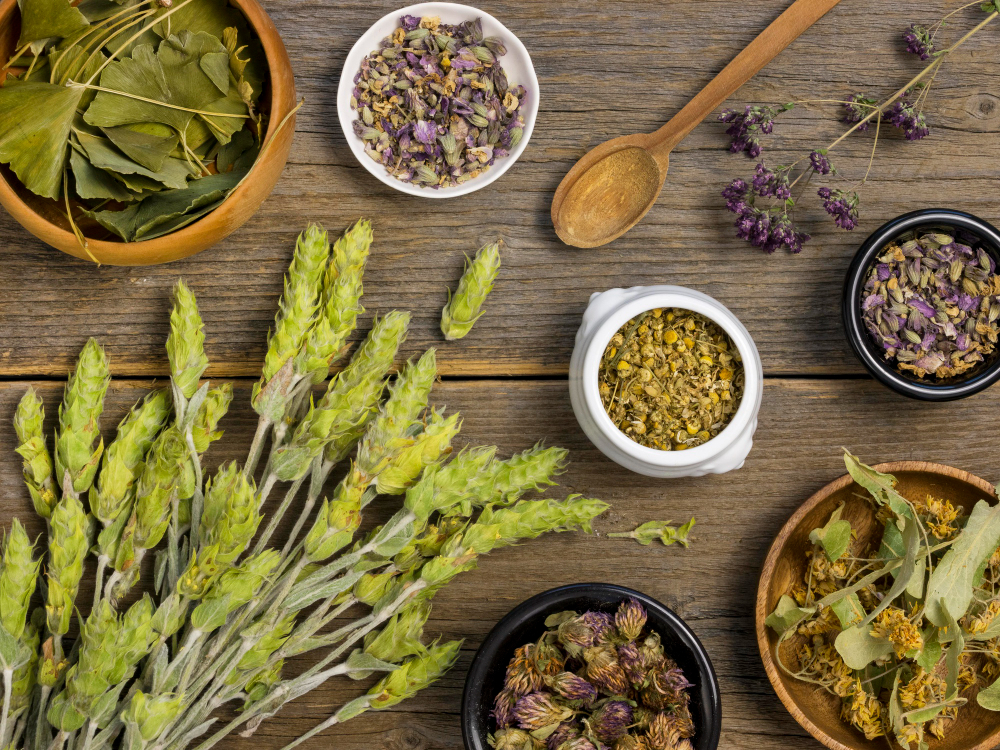Ayurveda, the ancient Indian system of medicine, offers a holistic approach to health and wellness. Rooted in the belief that health is a state of balance between the mind, body, and spirit, Ayurveda has employed natural remedies, especially herbs, for thousands of years. These herbs are considered to be the foundation of Ayurvedic treatments, offering a wide range of therapeutic benefits.
Understanding Ayurvedic Herbs
Ayurvedic herbs are categorized based on their taste (rasa), energy (virya), post-digestive effect (vipaka), and specific action (prabhava). These properties determine how a particular herb will influence the body’s doshas – the three fundamental energies (Vata, Pitta, and Kapha) that govern physiological and psychological processes.
By understanding these properties, Ayurvedic practitioners can select herbs that will balance the doshas and restore health. For instance, herbs with a sweet taste are often used to pacify Vata, while bitter herbs are used to reduce Pitta.
Common Ayurvedic Herbs and Their Benefits
- Ashwagandha (Withania somnifera): Known as the “Indian ginseng,” Ashwagandha is an adaptogen that helps the body resist stress. It’s particularly beneficial for reducing anxiety, improving sleep, and boosting immunity.
- Turmeric (Curcuma longa): This golden spice is renowned for its anti-inflammatory properties. Curcumin, the active compound in turmeric, can help alleviate joint pain, reduce inflammation, and support liver health.
- Brahmi (Bacopa monnieri): Often called “brain tonic,” Brahmi is used to improve cognitive function, memory, and concentration. It’s also beneficial for reducing stress and anxiety.
- Neem (Azadirachta indica): A versatile herb, neem is known for its antimicrobial and antifungal properties. It’s used to treat skin conditions, promote oral health, and support liver function.
- Tulsi (Ocimum sanctum): Revered as the “holy basil,” Tulsi is an adaptogen that helps the body adapt to stress. It’s also used to boost immunity, improve digestion, and reduce inflammation.
Tailoring Herbs to Individual Needs
The choice of Ayurvedic herbs depends on an individual’s unique constitution, or dosha. For example:
- Vata: Individuals with a Vata dosha may benefit from warming, grounding herbs like ginger, cardamom, and ashwagandha.
- Pitta: Those with a Pitta dosha may need cooling, soothing herbs such as aloe vera, coriander, and amla.
- Kapha: People with a Kapha dosha may benefit from stimulating, heating herbs like black pepper, ginger, and cinnamon.
Herbal Preparations
Ayurvedic herbs can be prepared in various forms, including:
- Churnas: Fine powders that can be mixed with water or honey.
- Kwathas: Decoctions made by boiling herbs in water.
- Ghrita: Herbal ghee infused with medicinal herbs.
- Arishtas: Fermented herbal preparations.
Precautions and Considerations
While Ayurvedic herbs offer numerous health benefits, it’s important to consult with a qualified Ayurvedic practitioner before starting any new herbal regimen. Some herbs may interact with medications or have contraindications for certain individuals.
Ayurvedic herbs offer a natural and holistic approach to healing. By understanding the principles of Ayurveda and working with a qualified practitioner, individuals can harness the power of these ancient remedies to improve their overall health and well-being.





